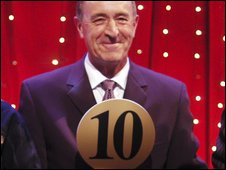 I often go to that online bookseller named after women with one breast (Amazon.) And noodle around looking for something new to read. And often I come upon something by an indie author with 9 – 17 reviews, all 5-star. And my usual conclusion is that this book is crap, likely reviewed mostly by the author’s mother and loving aunts. I tend to read the 3 and 4 star reviews first, and then glance at any 2 stars. I think I find a better class of books that way.
I often go to that online bookseller named after women with one breast (Amazon.) And noodle around looking for something new to read. And often I come upon something by an indie author with 9 – 17 reviews, all 5-star. And my usual conclusion is that this book is crap, likely reviewed mostly by the author’s mother and loving aunts. I tend to read the 3 and 4 star reviews first, and then glance at any 2 stars. I think I find a better class of books that way.
There is a sad trend toward making 5 star book reviews the norm, which is very bad. Because it makes people think anything less than five is a bad review marking a real stinker of a book.
This is awful. We need honest and fair reviews to help us find books we will like. I don’t insist on only perfect books. Some of my favorites are books where the author has a good story but is struggling with learning some of the writing skills. Honest and fair reviews help me know what I’m getting when I buy a book, and somehow if I know in advance that the book has some weak points, those weak points interfere less with my enjoyment.
Here are what the star-reviews mean on Amazon.com:
5 = I love it.
4 = I like it.
3 = It’s OK.
2 = I don’t like it.
1 = I hate it.
You can see that in a logical world, we would all know that 5 and 4 stars are good reviews, 3 stars can be good, bad or indifferent, and 1 and 2 are bad reviews. All modified a bit by the accompanying written review.
Very recently I have decided to become a serious Amazon reviewer. I am working to get more book reviews written. And in the meantime writing a few product reviews to add to my review total. [My profile page is here: https://www.amazon.com/gp/pdp/profile/A3GH4IA9SLC3YN You can read my most recent reviews there and if you find one of them ‘helpful’, please consider up-voting it, which will help my chance to rise in the reviewer ranks.]
My preference is to review books that are in genres I read, and that seem like I might enjoy them. These are the kind of books that I can review the best.
When it comes to getting a 5 star review from me, it’s kind of like getting a 10 from Len on Dancing With the Stars. You shouldn’t expect it, it’s very hard to get, and when you finally manage to get one, it really means something. I like to tell people seeking reviews from me that only 2 of the 4 Gospels get a full 5 stars from me (Luke and John.) And I regard the Gospels as being the Word of God!
Four-star reviews are my workhorse rating. Four-star reviews mean that it’s a good, solid book and that any flaws are minor and easily overlooked when you get caught up in the story. I give out a lot of 4-star reviews. Though I’m always happy when one of my favorite 4-star authors makes a Great Leap Forward and produces a 5-star book.
Three star reviews mean a book is OK. OK is good. If you don’t believe me, try reading a bunch of books that are LESS than OK. Three star books have more flaws and sometimes have a weaker, less compelling story. But if there are things to like in the story and characters, I will make sure to mention it. I prefer to review 3-star books with enough good qualities that the review is essentially a good review and will gain the author some readers in spite of any flaws. I haven’t had to give out any three-star reviews that were mostly critical yet. I probably wouldn’t bother except for a flawed book where the author was begging me for any review, even a bad one.
A two-star review means that the reviewer didn’t like it. That’s a very subjective term. There are great works of world literature that I don’t like, but I know they are well written and would never give them a 2-star. I think a fair-minded reviewer would rarely if ever bother to write a 2-star on a book. On a flawed product, especially a pricey one, maybe. It should only be used on a book that, objectively, has a number of deep flaws, and perhaps a moral issue in addition (porn or praise for Hitler and/or Stalin on top of incomprehensible writing would do it for me.)
One-star means you hated it. Can a Christian morally ‘hate’ anyone’s book? Or any person with a moral code? Most of the one-star reviews I’ve read were mean-spirited, cruel, and often based on the reviewer’s prejudices. Some fine non-fiction authors I know recently wrote a book about the Obama presidency that had some negative things to say. When the book came out some nasty people gave it one-star reviews without reading it— one admitted to reading no further than the title. I would never write a 1-star. I am a fallible human being and I would not judge any author’s book quite that harshly.
Do you write book reviews? What star ratings do you usually give out? Are you wary of books with nothing but 5-star reviews?
Join my Antimatter Life Insider newsletter. It will contain writing encouragement and some exclusive content aimed at blog fans, and also an exclusive chance to get your book reviewed by me. (Or a review of your blog on this blog, if you don’t have a book out yet.)









